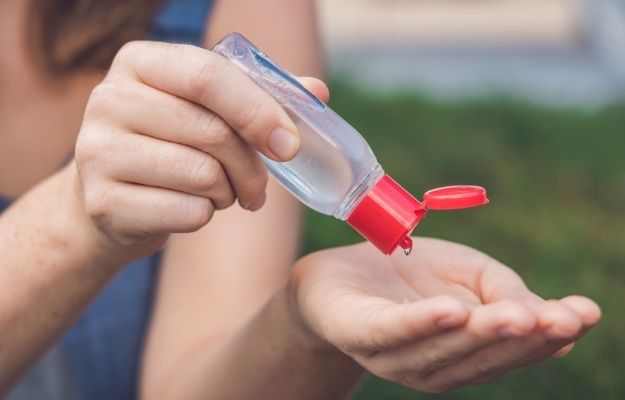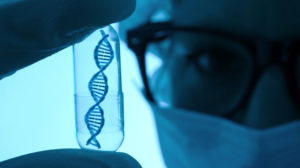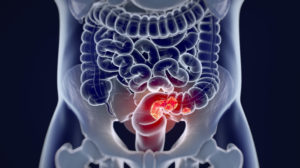The global pandemic has changed almost every factor of people’s lives. From economic devastation to peoples’ music taste, the world has been dramatically impacted by COVID-19 by altering our lives in many different ways.
Believe it or not, COVID-19 has even had an impact on the body’s largest organ – the virus is changing the skin’s epigenetic regulation.
RELATED: What Is The Role Of Senescent Cells in Aging?
In this article:
- How the Pandemic Has Caused Physical Skin Changes
- The Epigenetic Regulation of Skin
- How the Epigenetic Regulation of Skin is Changing
- Summary
How The Pandemic Has Caused Physical Skin Changes

Skin disorders can easily be triggered by the use of:
- Much more hand washing than usual
- Using liberal amounts of sanitizer gel
- Wearing face masks for extended periods of time
- Wearing personal protective equipment
Conditions caused by the pandemic and PPE can include:
- Pressure indentations and pressure-related injuries such as sores and bruising – when masks are worn for long periods (up to 12 hours of continual wearing), they become uncomfortable, to say the least.
- Allergic reactions – stinging, itching and burning can also result from allergies to the chemicals used in making PPE.
- Dyspigmentation (changes in skin color) – might occur due to resolving rashes, excessive rashes, and repetitive friction.
- Dermatitis/ skin irritations/ redness (rashes) can happen when the skin is exposed to repeated wet-dry conditions. Masks can get damp from a build-up of sweat and moisture.
- Worsening of wrinkles – PPE pushing on muscles and skin can induce long term wrinkles.
- Dry skin – handwashing excessively and using disinfectants and detergents impairs the epidermis, or the outer layer of skin. This hydrolipidic mantle protects the skin from damaging micro-organisms. Severe damage can include cracking and continuous bleeding, which further increases the risk for disease and infection.
Studies on wearing facemasks are showing that they can reduce the risk of transmitting diseases by stopping the spread of infectious droplets from the mouth and nose. The downside of wearing masks for long periods is suffering from skin irritation.
As well as within a medical environment, increased time spent at home due to regulations and guidelines has led to more people watching TV or being in front of phone and computer screens. Studies have shown that the blue light emitted from the digital devices promotes stressors that cause photo-aging, increases free radicals, and decreases carotenoids.
Facial muscles are additionally affected by squinting too often, which results in further facial wrinkling.
As well as these noticeable physical effects on our skin, the COVID-19 pandemic can also impact skin on an epigenetic level.
RELATED: Researchers Turn Off Key ALS Gene
The Epigenetic Regulation of Skin

The study of epigenetics tells us how specific biological markers activate or deactivate our genes, called gene expression. Gene expression does not change the gene sequence, only how a gene reacts to certain factors such as age, genotype, and certain aspects of lifestyle (for example, exercise, diet, and smoking).
Epigenetic skin changes occur naturally as you age—exposure to the sun, pollution, and ingredients in cosmetics all impact how our genes express.
How the Epigenetic Regulation of Skin is Changing

The above mentioned external influences on our skin can all affect epigenetic modifications and gene expression. These changes can be inherited, so skincare is even more critical in affected generations.
Different studies have covered the role of epigenetics in skin disease.
Study 1 – Psoriasis is a skin inflammatory condition that causes skin cells to multiply up to 10 times faster than usual. Hypermethylation commonly appears in the skin when severe abrasions are present compared to normal, healthy skin.
Atopic dermatitis (eczema) is a condition that makes your skin red and itchy.
DNA methylation levels may contribute to the development of this disease.
Study 2 – Tissue regeneration is controlled by the regulation of skin cell development, which can be influenced by things such as the environment.
Summary
The figures haven’t been established, but known reports of skin problems have increased from medical staff wearing PPE. The global pandemic has impacted our lifestyles, leaving us more vulnerable to epigenetic change.
However, there are also potentially reversible ways to support skin health through proper environmental stimuli. Consider getting a professional to check the quality of your skin (skin profiling) and then make actionable changes.
If you’re interested in learning more about epigenetics, visit the TruDiagnostic website or get more involved at the TruDiagnostic forum.
Please share your thoughts about epigenetic regulation of skin with us in the comments section below.
Up Next:
- Epigenetic Markers May Show Which Type 2 Diabetes Patients Can Tolerate Metformin
- New study shows A Body’s Biological Age Can Be Reversed
- Study Shows The Older A Person Is When They Give Birth, The Older They May Live
Sources:





